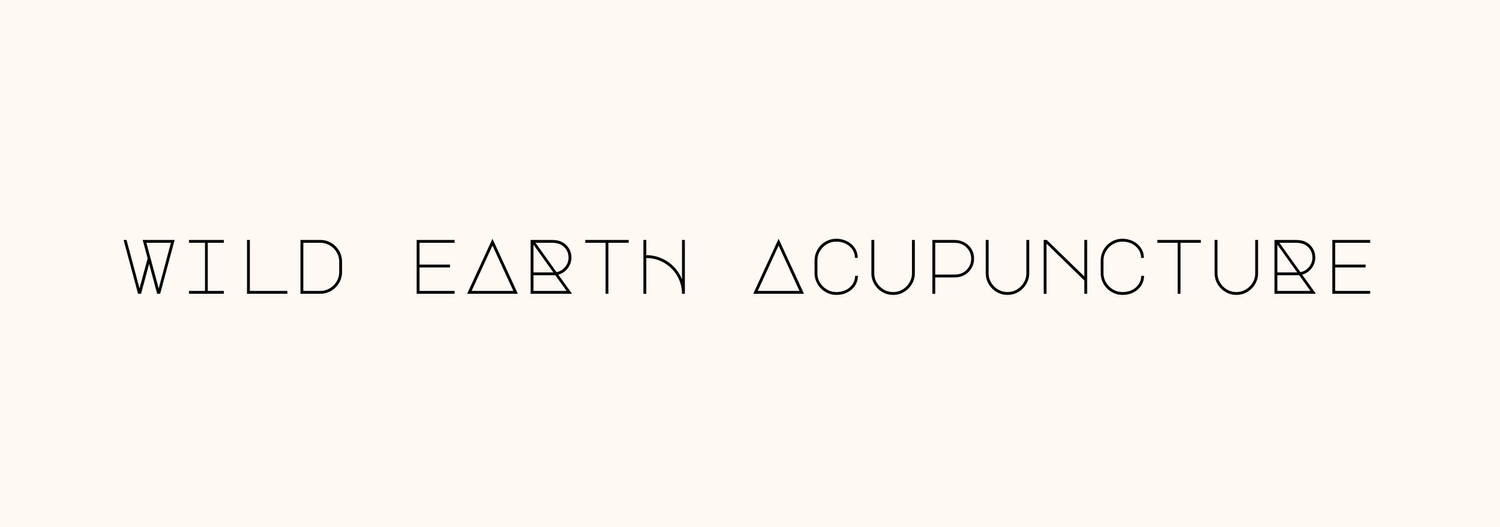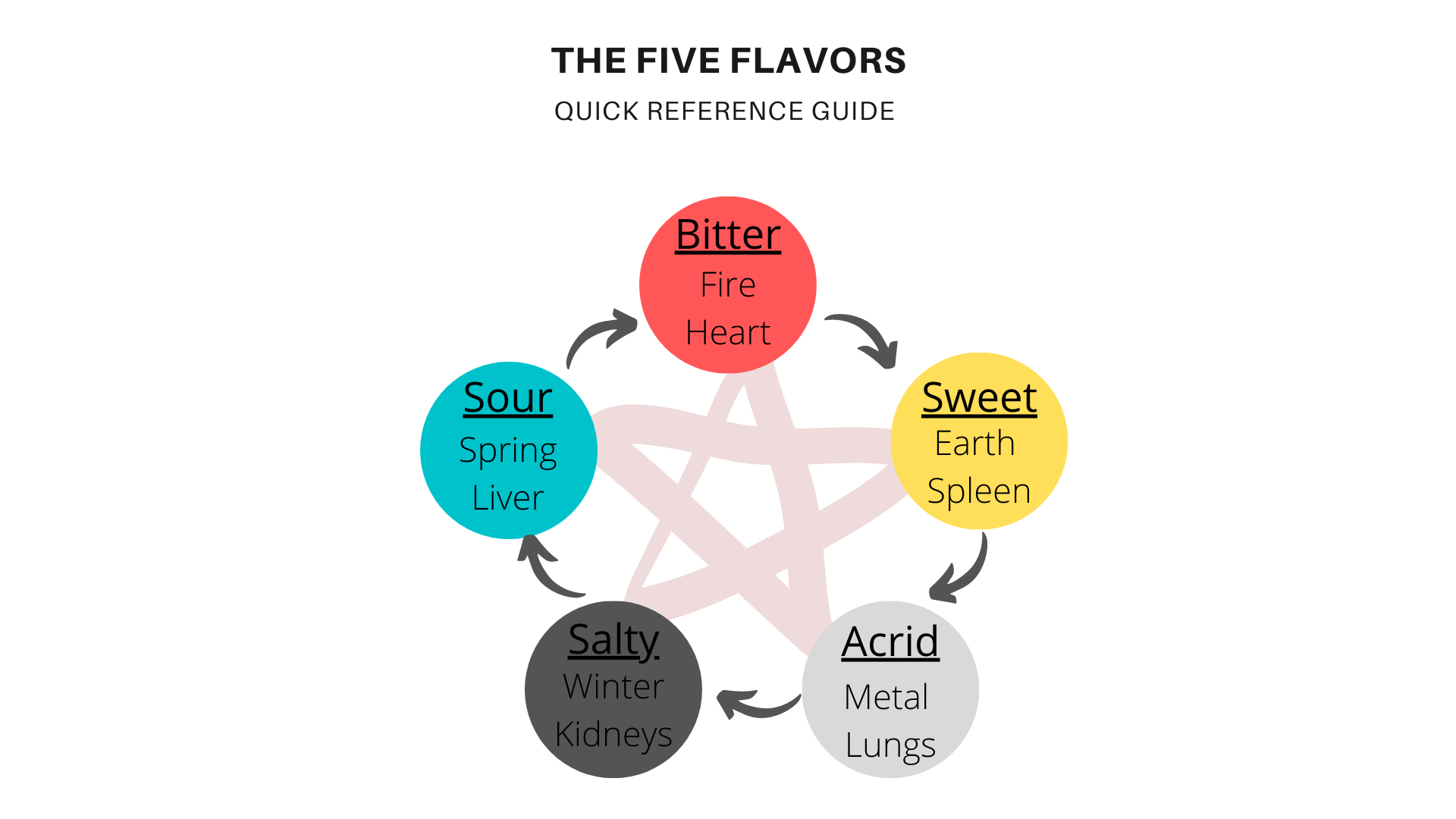The Five Elements
Traditional Chinese Medicine (TCM) is a comprehensive health system that emphasizes the balance and harmony of the body's vital energies, and an acute observation of patterns and the interplay of natural cycles. At the core of TCM philosophy are the Five Elements, also known as the Five Phases or Wu Xing. Each element corresponds to specific Organs, emotions, seasons, and other aspects of life, offering a comprehensive framework for understanding health and disease. In this article, we will explore the significance of the Five Elements in Traditional Chinese Medicine and how they interact and impact our health.
The Five Elements
Traditional Chinese Medicine conceptualizes health as a delicate balance between various internal and external factors. The theory of the Five Elements, sometimes referred to as the Five Phases, forms the basis of diagnosis, treatment, and understanding of human physiology in TCM. These elements—Wood, Fire, Earth, Metal, and Water— represent dynamic processes and interrelationships within the body and the universe.
Wood represents growth, creativity, and the Liver/Gallbladder organ system. When in balance, it promotes flexibility and assertiveness. However, imbalance may lead to frustration and anger, affecting the liver's functions and causing issues like headaches or digestive problems.
Fire symbolizes transformation, joy, and the Heart/Small Intestine and Pericardium/San Jiao systems. Balanced fire fosters warmth, compassion, and mental clarity. But imbalance can lead to anxiety, insomnia, or heart-related disorders.
Earth embodies stability, nurturing, and the Spleen/Stomach system. A harmonious earth element supports digestion, grounding, and a sense of security. Imbalance may manifest as worry, digestive disturbances, or lethargy.
Metal signifies refinement, clarity, and the Lung/Large Intestine system. Balanced metal promotes inspiration, grief processing, and healthy respiration. Yet, imbalance might lead to grief, respiratory issues, or skin disorders.
Water represents fluidity, wisdom, and the Kidney/Bladder system. A balanced water element supports adaptability, willpower, and vitality. However, imbalance can lead to fear, reproductive issues, or urinary problems.
The interactions among these elements are dynamic and cyclical, forming a network of relationships known as the Five Element Cycle. For instance, Wood feeds Fire, Fire creates Earth (ash), Earth bears Metal, Metal carries Water (as a container), and Water nourishes Wood. These cycles explain how disharmony in one element can affect others.
In TCM, treatment aims to restore balance by identifying and addressing the root cause of imbalance, often through acupuncture, herbal medicine, dietary therapy, and lifestyle adjustments. By harmonizing the Five Elements, TCM seeks to optimize health and well-being on physical, mental, and emotional levels.
Wood (Mu)
Organs: Liver and Gallbladder
Season: Spring
Attributes: Growth, flexibility, and the energy of initiation.
Flavor Association: Sour Foods
Imbalance: Anger, frustration, and stagnation.
Fire (Huo)
Organs: Heart and Small Intestine (Fire Yin), Pericardium, and Triple Burner (Fire Yang)
Season: Summer
Attributes: Passion, warmth, and transformation.
Flavor Association: Bitter Foods
Imbalance: Overexcitement, restlessness, and insomnia.
Earth (Tu)
Organs: Spleen and Stomach
Season: Late Summer
Attributes: Nurturing, stability, and the centering force.
Flavor Association- Bland and Sweet Foods
Imbalance: Worry, overthinking, and digestive issues.
Metal (Jin)
Organs: Lung and Large Intestine
Season: Autumn
Attributes: Clarity, precision, and the energy of refinement.
Flavor Association- Acrid Foods
Imbalance: Grief, pensiveness, vulnerability, sadness, and respiratory issues.
Water (Shui)
Organs: Kidney and Bladder
Season: Winter
Attributes: Fluidity, adaptability, and the energy of conservation.
Flavor Association- Salty Foods
Imbalance: Fear, insecurity, and urinary problems.
The Generating Cycle
The Five Elements are not isolated entities; they interact in a cyclical manner known as the Generating or Nurturing Cycle. This cycle reflects the harmonious flow of energy between the elements, promoting balance and well-being.
Wood generates Fire: Wood feeds the Fire's passion and intensity.
Fire generates Earth: Fire's ashes enrich the Earth's soil.
Earth generates Metal: Earth contains and gives form to Metal.
Metal generates Water: Metal helps condense and collect Water.
Water generates Wood: Water nourishes and supports the growth of Wood.
Understanding this cycle is crucial in TCM, as it guides practitioners in restoring balance and addressing health issues by regulating the flow of vital energy, or Qi.
The Controlling Cycle
In addition to the Generating Cycle, the Five Elements are also interconnected through the Controlling Cycle, which helps maintain equilibrium and prevent excesses.
Wood controls Earth: Roots of trees break up the Earth.
Earth controls Water: Earth dams control the flow of Water.
Water controls Fire: Water extinguishes Fire.
Fire controls Metal: Fire melts and shapes Metal.
Metal controls Wood: Metal axes cut Wood.
This interplay between control and generation provides a nuanced understanding of how imbalances can arise and be corrected within the body's energetic system.
Applications in TCM
TCM practitioners use the Five Elements theory to diagnose and treat various health conditions. For example, an imbalance in the Wood element might manifest as Liver dysfunction or emotional disturbances. By identifying the underlying elemental disharmony, practitioners can prescribe acupuncture, herbal remedies, dietary adjustments, and lifestyle changes to restore balance.
The Five Elements in Traditional Chinese Medicine offer a profound perspective on the interconnectedness of our internal and external environments. By recognizing the dynamic relationships between these elements, TCM provides a framework for understanding health, disease, and the intricate balance required for optimal health

































Learn about Kidney Yang Deficiency in Traditional Chinese Medicine, including signs, symptoms, food choices, and lifestyle tips to restore balance and vitality. Discover a warming recipe to support Kidney Yang health.